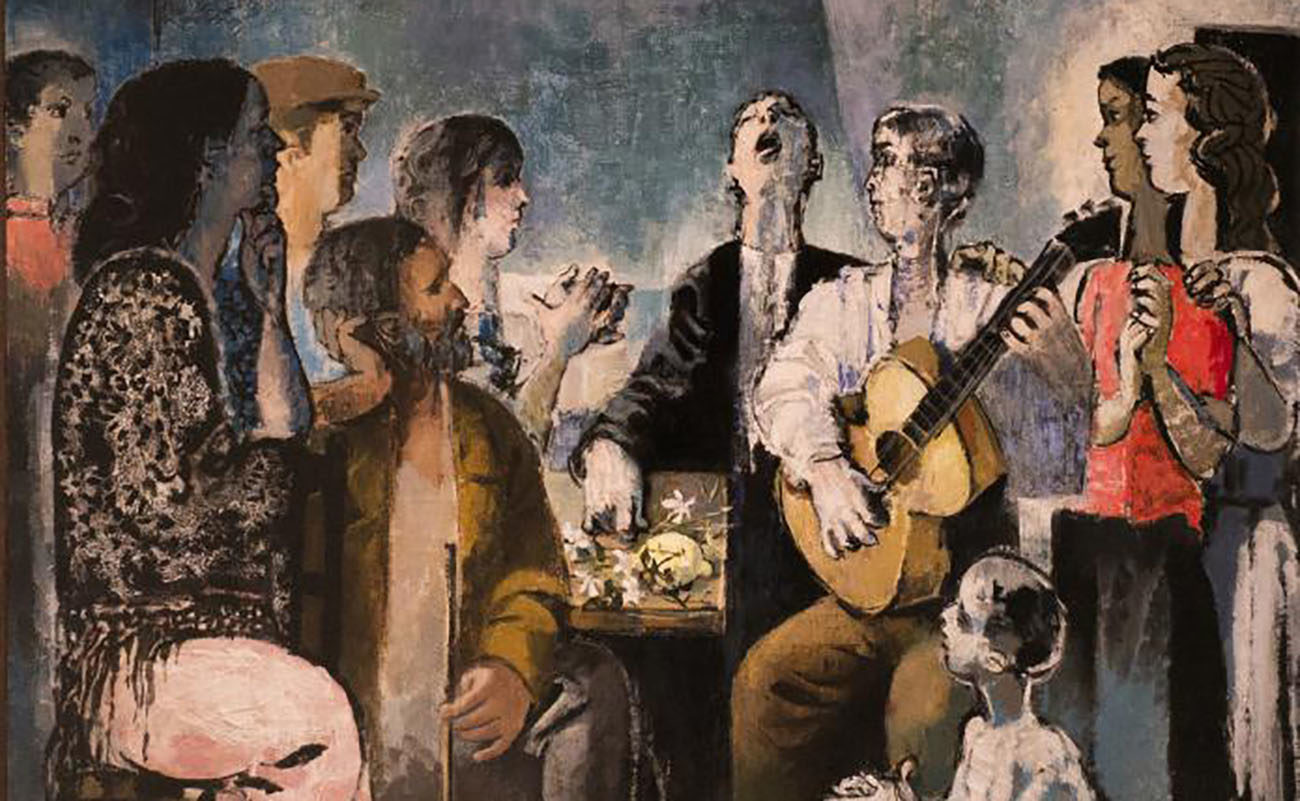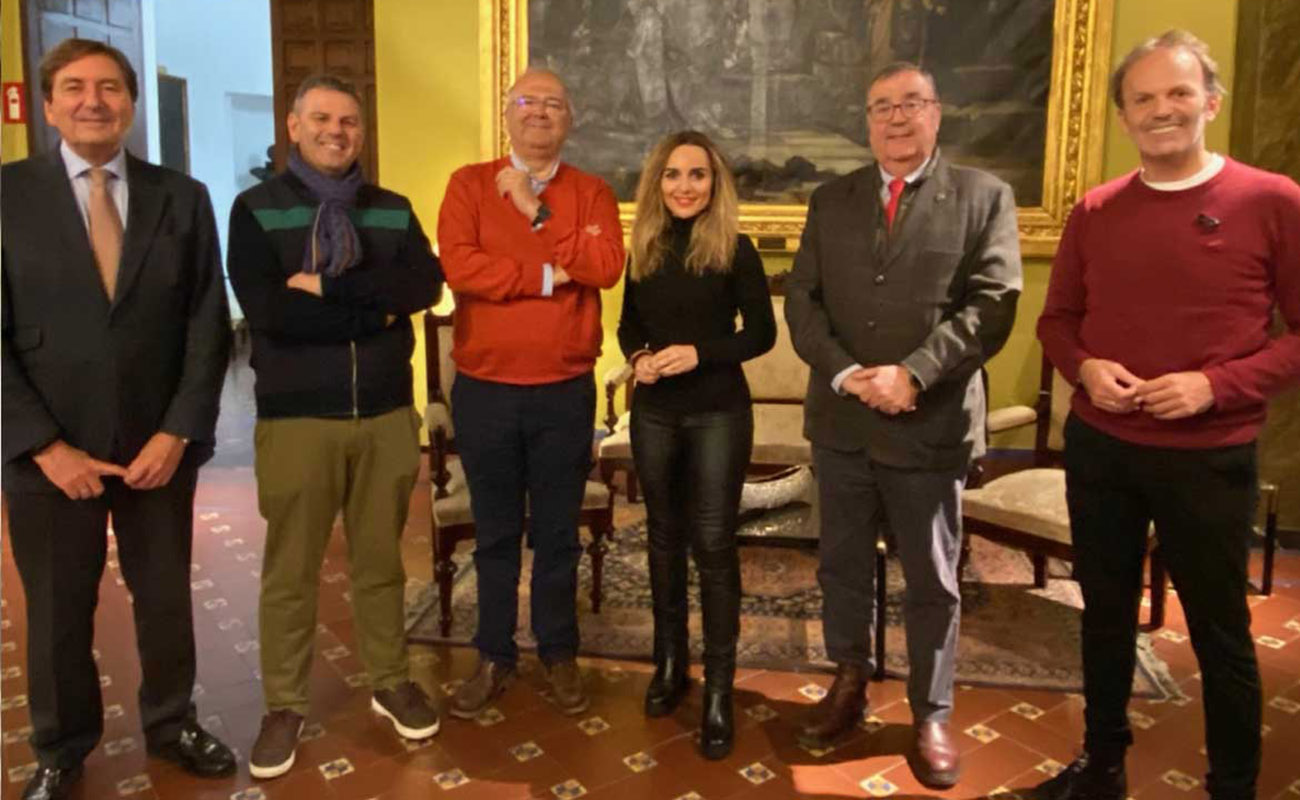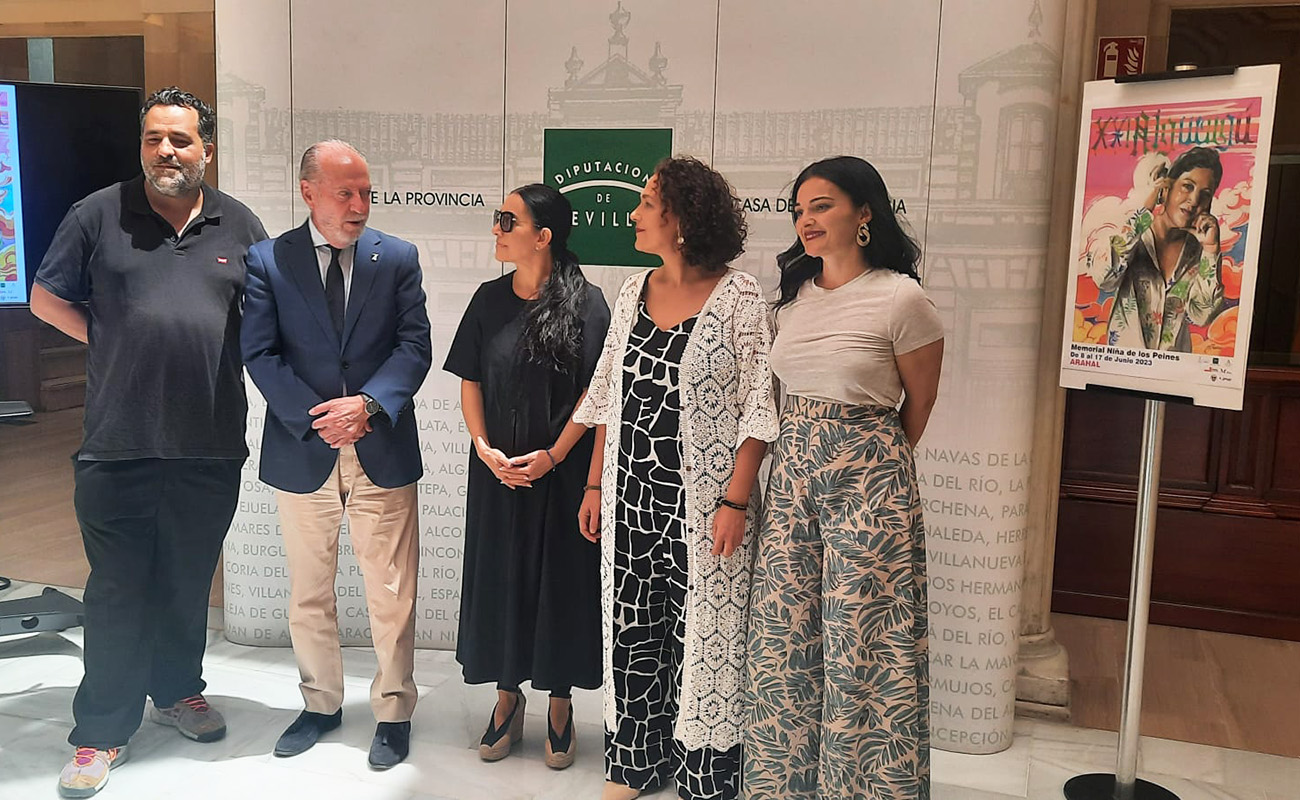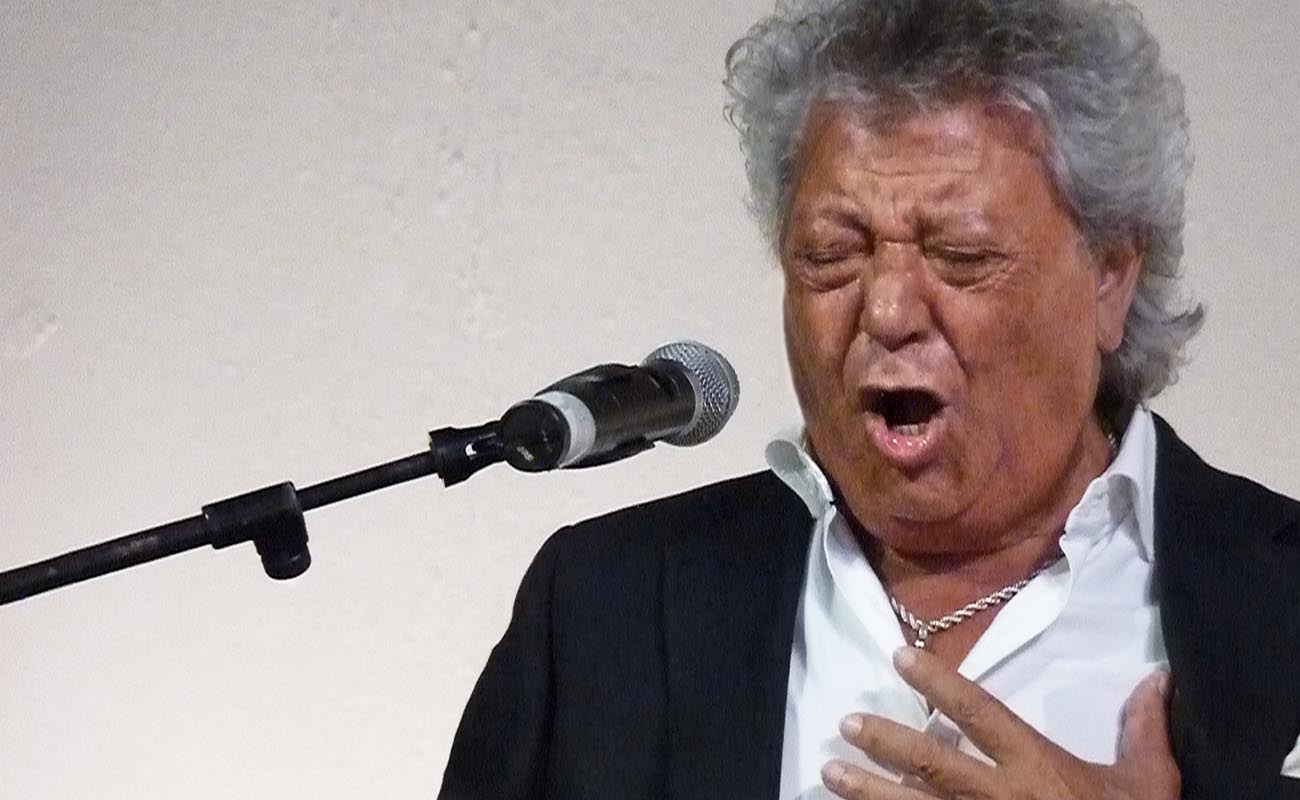The works of Moreno Galván exhibited at the Bruselas Flamenco Festival
The exhibition 'Francisco Moreno Galván: Affiches de la Reunión de Cante Jondo' is part of the programming of the Bruselas Flamenco Festival at the Centre for Fine Arts in Brussels (BOZAR)

The exhibition Francisco Moreno Galván: Affiches de la Reunión de Cante Jondo is part of the programming of del Bruselas Flamenco Festival, and it will be open to the public between March 6th and March 10th at the BOZAR (Centre for Fine Arts) in Brussels.
A selection of works from the collection of the Museo de Arte Contemporáneo José María Moreno Galván, essentially the posters for the Reunión de Cante Jondo de La Puebla de Cazalla, by the painter and poet Francisco Moreno Galván (La Puebla de Cazalla, Seville province, 1925 – 1999), are now in Brussels on occasion of a great exhibition organized by the BOZAR Center and the Culture Council of the City of La Puebla de Cazalla, as part of the 2019 Bruselas Flamenco Festival.
The exhibition is curated by María José Sánchez Gago and Miguel Ángel Rivero, and is opened to the public until Sunday, March 10th in the Terarken Room of the Bozar Cultural Center in Brussles.
The program of the Bruselas Flamenco Festival this year focuses on five topics: protest songs (‘La Protesta’), Belgian flamenco artists (‘Los Nuestros’), women (‘Día Internacional de la Mujer’), flamenco dynasties (‘Dinastías Flamencas’) and children (‘Día Familiar’). The first day of the festival focuses on social activism in flamenco, with a tribute to three poets: Miguel Hernández, Rafael Alberti and Francisco Moreno Galván.
In parallel with the tribute to Francisco Moreno Galván, the show La Protesta will be performed by Ana Ramírez La Yiya, Rocío Márquez, Juan Pinilla (cante), Manuel Herrera (guitar) and David Pérez (baile), giving voice to poems and flamenco lyrics with a heavy social and ideological content facing Franco’s dictatorship.
During the first day of this festival, La Puebla is also represented by Miguel Ángel Rivero, who takes part together with Juan Pinilla, José Miguel Arranz and Bart Vont in the round table The importance of the antifascist poets in flamenco and Spanish culture.

Setting up the exhibition (Photo: La Puebla de Cazalla City Council).




